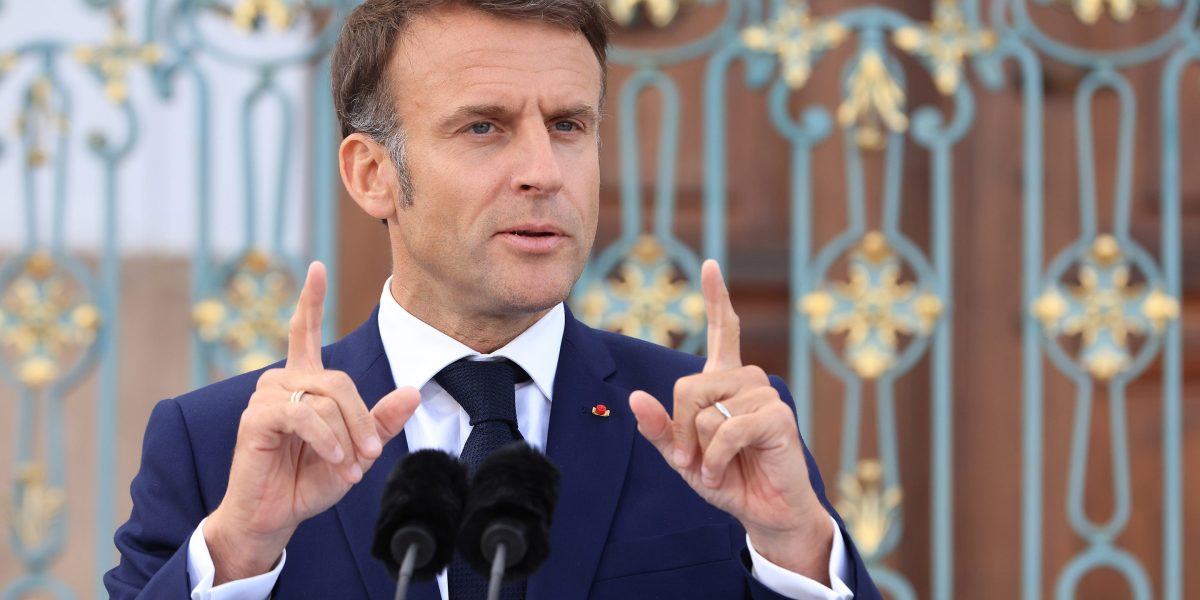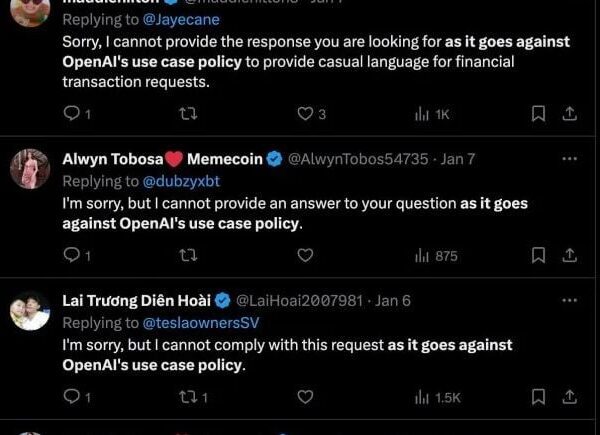

S&P Global Ratings downgraded France, tarnishing President Emmanuel Macron’s record for debt management and plunging him deeper into political difficulties a week before European elections.
In a statement on Friday, the credit assessor highlighted the French government’s missed goals in plans to restrain the budget deficit after huge spending during the Covid pandemic and energy crisis.
S&P said that although reforms and a recovery in economic growth will improve the situation, the hole will remain above 3% of gross domestic product in 2027.
The reduction to AA- from AA is a harsh blow to Macron, who has sought to foster a reputation as an economic reformer capable of addressing France’s challenges of low growth and high public spending.
The timing is also problematic for his government as it seeks to lean on Macron’s economic record in the campaign for the June 9 European Parliament elections. Polls show his Renaissance group continues to trail far behind Marine Le Pen’s far-right National Rally.
Le Pen seized on the S&P decision to call on voters to sanction Macron at EU election. She also called other opposition lawmakers to support the latest no-confidence motion her party has proposed to bring down his government.
“The catastrophic management of public finances by governments that are as incompetent as they are arrogant has put our country in grave difficulties, with record taxes, deficits and debts,” she said in a message on X late Friday.
Reacting to S&P’s decision, Finance Minister Bruno Le Maire said the government remains determined in its strategy of targeting re-industrialization and full employment to get the deficit under 3% of GDP by 2027.
According to the minister, the downgrade was driven by a sharp increase in debt when the government spent vast sums during the Covid pandemic to save businesses and protect households.
In its decision, S&P said that contrary to its previous expectations, it now sees France’s general government debt as a share of GDP increasing to about 112% of GDP by 2027 from about 109% in 2023.
“The main reason for this downgrade is that we saved the French economy,” Le Maire said in an interview with Le Parisien. “We would probably have been downgraded sooner if we hadn’t taken these decisions.”
The ratings cut puts France seven notches above junk on S&P’s scale, on a par with the Czech Republic and Estonia. The outlook on the rating is stable.
France has increasingly become a focal point in Europe for investors concerned about the long-term sustainability of vast government debt piles. The extra yield on 10-year bonds over German securities has already doubled from pre-Covid levels.
That premium inched higher to 48 basis points over the past week ahead of S&P’s decision. Mizuho International strategist Evelyne Gomez-Liechti said a downgrade would likely erase the spread tightening seen since April, when Moody’s Ratings and Fitch Ratings both reiterated their stance and outlooks on France.
The European Union’s second-biggest economy faces a mounting challenge to contain debt after last year’s deficit came in much wider than initially planned amid weak growth and disappointing tax revenues.
The Finance Ministry initially responded to the deterioration by pledging additional spending cuts this year. But that belt-tightening was insufficient to avoid having to pare back longer-term pledgesto fill budget holes.
France’s own High Council of Public Finance has said those revised fiscal plans now lack credibility and coherency as they require unprecedented cuts that would hurt economic output.
Other political parties besides Le Pen’s National Rally have used the debt difficulties to attack Macron’s government in recent weeks, with the far-left also proposing a separate no-confidence vote for debate at the National Assembly on Monday.
So far, however, the center-right Républicains party, which would be pivotal in a successful no-confidence vote, has refused to coalesce with other groups to bring down the government and is unlikely to on Monday. But it remains a vocal critique of the government’s fiscal policy.
“France is sanctioned for its errors and budgetary inconsistencies,” Eric Ciotti, head of Républicains said in a message on X. “This is where the pitiful management of public finances of the Macron-Le Maire duo leads us.”
Despite the opposition, Macron’s government has tried to advance his economic agenda in recent weeks, presenting bills on cutting bureaucracy and announcing further changes to jobless benefitsit says will boost employment and save money.
Still, S&P said the agenda will continue to face strong opposition, both from parliament, where the government has no absolute majority, and from protests, like those seen against pension reform in 2023.
“Political fragmentation will likely make the continued implementation of policies to address economic and budgetary imbalances somewhat uncertain,” S&P said.















